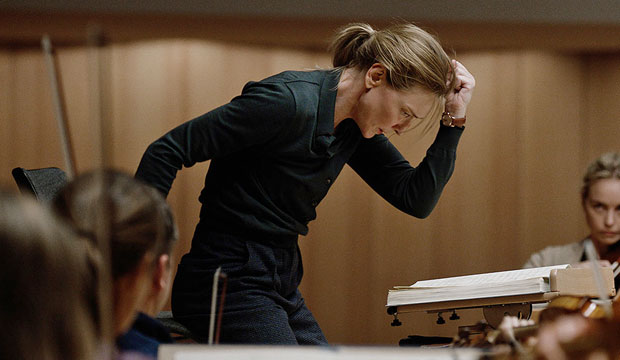Film
TÁR: Cate Blanchett Delivers a Bravura Performance in Todd Field’s Elegant Portrait of Cancel Culture
NYFF 2022: TÁR Review
When an artist’s work is undeniable it can too often breed an absolute monster. Artistic genius can benefit the distant masses but, as recent movements have shown us, can also be devastating to those around them who have to navigate the complicated labyrinth of social aristocracy they engender. Such is the case with lauded conductor Lydia Tár (Cate Blanchett) in TÁR, writer-director Todd Field’s brilliant yarn about the fall of a celebrated conductor in the era of cancel culture. After 16 years, Field returns with a devastating portrait of ego and the entitlements of success that get exploited to further one’s vanity and self-importance.
Lydia sits atop the world of contemporary classical music as one of its foremost interpreters of dead European masters. Her institutional accolades far outnumber the participation trophies many of us millennials are believed to have featured in our parents’ homes. Much like herself, Lydia’s world is chic and austere. She inhabits grand and modern spaces from concert halls to her concrete-walled West Elm catalog of an apartment. She is referred to by nearly everyone as “maestro” with some even kneeling before her in the auditorium that is her de facto cathedral. In this sacred space, she isn’t just the conduit for God, she is God.
She controls time itself with gestures both slight and grand atop the podium in front of the world’s most talented musicians. Confident and composed, she moves through the world with conceited impunity. Her will and loquacious convictions are not only tolerated but cherished by her adoring public and the acolytes that worship at her feet. Her status makes her irrefutable, something she makes clear to a small girl who bullies her adopted daughter Petra (Mila Bogojevic) on the playground. She commands the child to stay away from her daughter and not tell anyone about the threat because it will be her word against an adult’s. “Who’s going to believe you,” she sneers.

Lydia lives in Berlin with her daughter and wife/first chair violinist Sharon (Nina Hoss). She’s preparing a performance of Gustav Mahler’s fifth symphony; conducting not only the orchestra but every sordid detail including the photo for the album cover and the digital fidelity with which the recording will be made. Rarely more than a few feet from her is her assistant Franchesca (Noémie Merlant); a handler, confidant, and aspiring conductor that was once part of an incubation program setup by Lydia to foster up-and-coming female talent. It’s because of that program and Lydia’s indulgent urges that we start to see the hairline cracks in her elegantly sculpted life begin to widen when a former participant desperately tries to reach her while she becomes engrossed with a young cellist (Sophie Kauer).
To use the irresistible analogy, Field’s latest is a symphony with Blanchett as a virtuoso soloist. Like the musicians in Lydia’s orchestra, whom Blanchett actually conducted, she hits the piano and forte dynamics of her performance with masterful elegance. Field’s camerawork and framing with cinematographer Florian Hoffmeister are another highlight, opting for legato takes that have no need to cut into the scene’s tension.
Field gives us a view into the fall of a grand figure who abuses their position at the top of a codified power structure but also puts the “separating the art from the artist” argument front and center. Should celebrated and cherished works of art lose regard because of their problematic authors? Field appears to believe art and appreciation should transcend the ego and be appreciated for the genius it offers. It’s a timely argument for which our culture doesn’t have a solid answer.
We’re now in a place where our culture has begun to look back on the #metoo era to scrutinize its successes, faults, and legacy. For instance, She Said, a film about the New York Times’s work on Harvey Weinstein’s crimes will be released later this year. TÁR is an exceptional post-#metoo document that portrays the movement’s consequences but also the complex ethical conundrums surfaced in its wake.


































